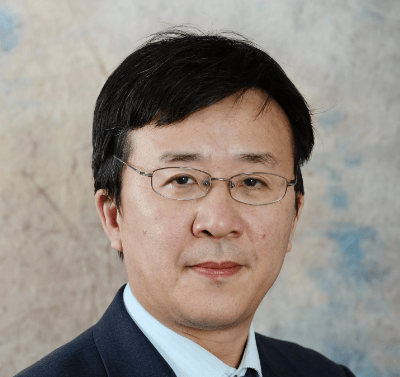Fei Duan

Fei Duan
School of Mechanical and Aerospace Engineering, Nanyang Technological University
feiduan@ntu.edu.sg
High-efficiency Cogeneration Power System from Gas Turbine Fueled with Low Carbon Emissions
BIO
Dr. Fei Duan joined Nanyang technological University (NTU), Singapore in July 2008, now he works there as a tenured faculty in School of Mechanical and Aerospace Engineering at NTU. He graduated with his Ph.D. degree from University of Toronto, Canada in 2005. He also worked as a visiting scientist in Institute of Fluid Mechanics at Friedrich-Alexander-University, Erlangen-Nuremberg, Germany. The topics of his research cover thermofluids, enhanced thermal management, efficient energy systems, etc. In NTU, Dr. Duan has secured over 12 million Singapore dollars on research funding from the governmental agencies and industries as a principal investigator. have advised over 28 postdoctoral fellows or research associates, 18 Ph.D. students, and 14 Master’s students. He has published over 180 peer-reviewed journal papers, 4 patents, 5 book chapters, and 120 conference presentations. He serves as Subject Editor for Applied Thermal Engineering (Elsevier, Impact Factor: 6.4), and at Editorial Board for Scientific Reports (Nature Portfolio, Impact Factor: 4.8) and Frontiers in Heat and Mass Transfer (Tech Science Press).
ABSTRACT
We have designed power cogeneration system from the liquefied natural gas (LNG), as a fuel. The cogeneration system combines the gas turbine system and self-designed thermoacoustic engine. The system applies LNG which removes the harmful emissions including nitrogen oxide, sulfur oxide, particulate matters, etc. and reduce the CO2 emission in comparison of the traditional long-carbon-chain fossil fuels. Although LNG is convenient for transporting and storing, it should be regasified before applied in a gas turbine for electric power generation. We have explored to reuse the cold energy source from LNG at the cryogenic level and waste heat from gas turbine for the second power generation for improving the overall thermal efficiency of the system. The thermoacoustic engine, having a high efficiency with a low maintaining cost, has been applied. The talk covers the application review of LNG, the design of thermoacoustic engine in the kilowatt level, regasification of LNG, phase change storage, overall system test. The thermal, economic, environmental, and sustainability models has been developed for the LNG powered cogeneration system. We are extending the models in the present project on the ammonia-based gas turbine system for the low carbon emission.